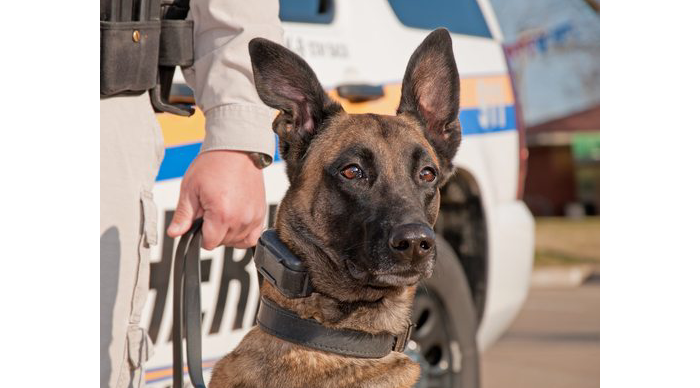Choosing the right dog behavior expert witness involves several key considerations. First, it’s important to check their qualifications, like certifications from recognized bodies such as IAABC or CCPDT, and educational background in veterinary behavior or animal science. Experience matters too; ideally, they should have multiple years working directly with dogs and court testimony experience. Their training approach should focus on positive reinforcement rather than punishment-based methods to align with ethical standards and be well accepted legally. Also, clear communication skills are essential since explaining complex behavior issues in simple terms can affect case outcomes. Finally, verify references and professional affiliations to ensure credibility before hiring.
Understanding the Role of a Dog Behavior Expert Witness
A dog behavior expert witness brings specialized knowledge to legal cases involving dogs by analyzing canine behavior patterns and training methods. They are often called upon in situations like dog bite incidents, animal cruelty claims, custody battles over pets, negligence lawsuits, breed-specific law disputes, and issues concerning service animals. Their role is to observe and evaluate the dog’s behavior in context, review relevant records such as veterinary and training histories, and provide informed opinions on whether the dog’s actions were predictable or preventable given typical care and handling standards. These experts come from diverse backgrounds including professional dog training, veterinary medicine, animal behavior science, or psychology focused on animals. It’s important that they remain neutral, basing their conclusions on observable facts and scientific principles rather than personal opinions. A key part of their job is to translate complex concepts about canine behavior into clear, understandable explanations for judges, juries, and attorneys. By doing so, they help clarify misunderstandings about why a dog acted a certain way, assisting the court in making well-informed decisions without advocating for either party.
Essential Qualifications and Certifications to Look For
When choosing a dog behavior expert witness, it’s crucial to focus on their formal qualifications and certifications, which reflect their knowledge and professionalism. Veterinary Behaviorists (DACVB) are veterinarians who have completed specialized residencies and passed board certification in animal behavior, making them highly qualified in both medical and behavioral aspects. Certified Applied Animal Behaviorists (CAAB) hold advanced degrees such as a PhD, DVM, MA, or MS in animal behavior or related biological sciences, ensuring a strong scientific foundation. Certified Dog Behavior Consultants, like those with the CDBC credential from IAABC, must pass exams and keep up with continuing education, demonstrating ongoing commitment to best practices. Another respected certification is the CCBC-KA from CCPDT, which focuses on behavior analysis and ethology through exam-based validation. Veterinary Technician Specialists in Behavior (VTS-Behavior) are licensed vet techs who add specialized behavior certification through exams and case documentation. For trainers, credentials like CPDT-KA and CPDT-KSA show assessed knowledge and skills, while IAABC Accredited Dog Trainer (ADT) status reflects adherence to professional standards. Fear Free Certified Trainers emphasize humane, low-stress training methods aligned with modern animal welfare guidelines. These certifications matter because they show the expert’s commitment to ethical practice, scientific rigor, and skill mastery. Always verify these credentials through the issuing organizations to ensure they are current and valid, which helps confirm the expert’s credibility and suitability for legal cases involving dog behavior.
Evaluating Experience and Practical Case Work
When choosing a dog behavior expert witness, it’s crucial to look beyond credentials and focus on practical experience. Experts should have at least three years of direct involvement in animal behavior consulting or dog training, backed by hundreds of hours of hands-on work, mentorship, and related coursework. This kind of experience ensures they understand the real-world challenges dogs face, not just theory. It’s also important that they have worked with a variety of dog breeds, especially those relevant to the legal case, since behavior can differ widely across breeds and individual dogs. Active participation in professional groups or animal welfare organizations shows the expert stays current with evolving practices and standards. Experience writing expert reports and testifying in court is a big plus, as it demonstrates their ability to communicate complex behavior issues clearly and professionally in legal settings. Practical skills like assessing behavior in different environments, recognizing triggers, and understanding responses are fundamental. Experts should also have a history of applying behavior modification techniques and interpreting training results to provide informed opinions. A well-established reputation built through consistent, documented case work, especially with success in similar legal matters, adds to their reliability and trustworthiness. For example, an expert who has regularly consulted on dog bite cases and provided clear, unbiased testimony will likely offer more credible insights than someone with limited courtroom exposure or mostly academic experience.
Preferred Training Methods and Philosophies
When choosing a dog behavior expert witness, it is important to select someone who uses humane, force-free training methods based on positive reinforcement. Experts relying on punishment-based tools such as shock collars, choke chains, or physical corrections should be avoided, as these approaches can harm dogs and reduce the credibility of their testimony. Preferred training philosophies reject dominance theory, which lacks scientific support and often leads to unnecessary stress or aggression in dogs. Instead, experts should apply evidence-based methods that reflect current knowledge in animal learning and welfare science. Positive reinforcement encourages desirable behaviors through rewards and motivation, rather than fear or pain, and prioritizes low-stress handling by recognizing the dog’s emotional state and individual needs. Ethical training practices aligned with animal welfare standards are more likely to be accepted in court and demonstrate professionalism. Additionally, the expert’s methods should be transparent, replicable, and backed by scientific literature, showing adherence to professional codes of ethics. Understanding the difference between training and behavior modification is also key, as appropriate interventions depend on whether the focus is on teaching new skills or changing problematic behaviors. For example, an expert might use reward-based shaping techniques to build confidence in a fearful dog rather than relying on dominance-based corrections. Overall, an expert who embraces compassionate, science-driven training philosophies helps ensure their opinions are respected and effective in legal settings.
Legal Responsibilities and Courtroom Skills
A dog behavior expert witness must always maintain impartiality, offering unbiased and objective opinions to help the court understand the facts without favoring any party. Their role is not to advocate but to provide clear, evidence-based insights. Effective communication is key: experts need to translate complex behavior concepts into simple, jargon-free language that judges and juries can easily grasp. Writing detailed, well-organized reports is essential, as these documents often form the foundation of their testimony. In court, confidence and calmness are vital, especially during cross-examination when their methods and conclusions may face intense scrutiny. Experts with prior courtroom experience or formal training in delivering testimony tend to handle these challenges better. They must be prepared to explain and defend their approach clearly while upholding professionalism and ethical standards throughout the legal process. Understanding legal standards for admissibility, such as relevance and reliability, ensures their opinions hold weight and are accepted by the court. Ultimately, a skilled dog behavior expert witness bridges the gap between scientific knowledge and legal expectations, aiding the court without bias or confusion.
Steps to Verify and Select the Right Expert
Start by confirming all claimed credentials directly with the certifying organizations and licensing boards to avoid any misrepresentation. Reach out to references such as past clients, attorneys, or courts where the expert has testified to get a clear picture of their reliability and professionalism. Request a sample expert report or schedule an interview to assess how well the expert communicates complex behavior issues and whether their reports are clear and thorough. Make sure the expert’s experience fits the specific behavior problems and legal context of your case, as expertise in unrelated areas won’t be as helpful. Discuss fees upfront, covering review time, depositions, and court appearances to prevent surprises later. Check if the expert is a member of respected professional groups like IAABC, CCPDT, or the Association of Animal Behavior Professionals, as this often means they stay current with standards and ethics. Evaluate their reputation among peers and legal professionals, since a well-regarded expert adds credibility. Confirm their availability to meet deadlines and attend all necessary proceedings. Review any publications or research they have contributed to, which can demonstrate deeper knowledge and commitment to the field. Finally, assess their ability to work smoothly with legal teams and other professionals, ensuring a collaborative approach that supports your case effectively.
- Confirm all claimed credentials by checking with certifying organizations and licensing boards.
- Contact references including past clients, attorneys, or courts where the expert has testified.
- Request a sample expert report or conduct an interview to assess communication skills and report clarity.
- Ensure the expert’s experience matches the behavior issues and case context specifically.
- Discuss and clarify fees upfront, including review, deposition, and court appearance charges.
- Check membership in reputable professional organizations like IAABC, CCPDT, or Association of Animal Behavior Professionals.
- Evaluate the expert’s reputation within the professional community and legal circles.
- Consider the expert’s availability to meet case deadlines and requirements.
- Review any publications or research contributions that demonstrate expertise.
- Assess the expert’s ability to collaborate with legal teams and other professionals.
Common Warning Signs When Choosing an Expert
When selecting a dog behavior expert witness, certain warning signs should raise concerns. Experts who promote punishment-based or dominance-focused training methods tend to be outdated and can weaken your case, as courts increasingly favor humane, science-backed approaches. Be cautious of those who rely mostly on anecdotal stories rather than solid scientific evidence; their opinions may lack credibility. A lack of formal education or refusal to engage in continuing education often signals that the expert’s knowledge might be outdated. Overly aggressive or biased behavior from the expert can damage the case’s integrity and make their testimony less persuasive. Transparency is key: experts unwilling to provide detailed reports or clearly explain their findings should be questioned. Claims without verifiable credentials or professional affiliations are suspicious and should not be trusted. Watch for unprofessional conduct or poor communication skills since these can create obstacles during legal proceedings. Limited practical experience in cases similar to yours may mean the expert lacks the necessary insight to handle complex legal nuances. Experts who dodge tough questions or fail to defend their methods risk undermining their own reliability. Lastly, inconsistent or vague documentation of past casework makes it difficult to assess the expert’s true capabilities and reliability.
Additional Tips for Working with Expert Witnesses
Before involving a dog behavior expert witness, it’s important to conduct a thorough veterinary health check to rule out any medical issues that might influence the dog’s behavior. This step helps focus the expert’s evaluation on behavioral factors rather than underlying health problems. When selecting an expert, look for someone willing to collaborate closely with veterinarians, trainers, and legal professionals to build a well-rounded understanding of the case. Experts who have published research or contributed to canine behavior literature often bring added credibility and a deeper knowledge base. Use directories from well-known organizations to find vetted professionals who meet recognized standards. Make sure the expert is familiar with the legal standards and courtroom expectations specific to your jurisdiction, as this ensures their testimony aligns with local rules and procedures. Early on, clarify communication protocols and timelines to avoid misunderstandings during the case. If needed, encourage the expert to provide educational sessions to the legal team to explain technical behavior concepts clearly. Keep detailed records of all communications, reports, and testimony to maintain an organized case file. Preparing the expert for the stress of legal proceedings through mock testimony or coaching can improve their confidence and effectiveness in court. Finally, stay informed about current trends in behavior science to ensure the expert’s methods and opinions reflect the latest best practices rather than outdated ideas.

Mary Burns is a dedicated writer focusing on health and fitness topics. With a passion for promoting wellness and vitality, Mary shares her knowledge and expertise through engaging and informative blog posts.




